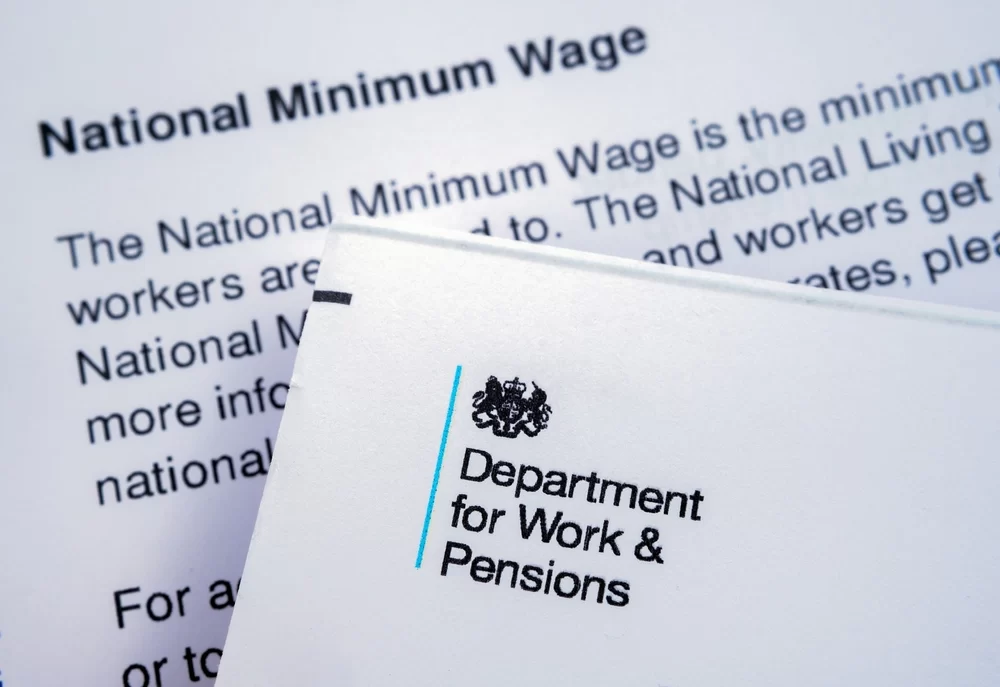On 17 November 2022, the UK Government confirmed in its Autumn Statement that it has accepted the Low Pay Commission’s proposed increases to the national living wage (NLW) and national minimum wage (NMW) rates from 1 April 2023.

About the National Minimum Wage (NMW)
The national minimum wage (NMW) is a prescribed minimum hourly rate of pay which employers must legally pay to most of their workers.
There are five different rates of NMW for different age-related categories of worker:
- National living wage. Since 6 April 2021 this applies to workers aged 23 or over. The NLW was initially set by the government in April 2016 at 50p above the standard adult rate, but is now a separate age-related hourly rate.
- Standard (adult) rate. For workers aged 21 and 22.
- Development rate. For workers aged between 18 and 20 inclusive.
- Young workers rate. For workers aged under 18 but above the compulsory school age, that are not apprentices.
- Apprentice rate. For apprentices under 19 years of age or those aged 19 and over but in the first year of their apprenticeship.
A worker is entitled to the rate that applies at the start of a particular pay reference period even if the NMW rates are changed or the worker becomes entitled to a different rate during that reference period (regulation 4B, NMW Regulations 2015).
National Minimum Wage Increases Announced for 1 April 2023
Having accepted the Low Pay Commission’s proposed increases to the national living wage (NLW) and national minimum wage (NMW) rates from 1 April 2023, the new rates from 1 April 2023 will be:
- Age 23 or over (NLW rate): £10.42 (up 9.7% from £9.50)
- Age 21 to 22: £10.18 (up 10.9% from £9.18)
- Age 18 to 20: £7.49 (up 9.7% from £6.83)
- Age 16 to 17: £5.28 (up 9.7% from £4.81)
- Apprentice rate: £5.28 (up 9.7% from £4.81)
Although an increase in wages will be warmly welcomed by those currently receiving the NLW and NMW struggling to cope with the cost of living crisis, the increase announced on 17 November 2022 falls short of the Real Living Wage of £10.90 (£11.95 in London) that the Real Living Wage Foundation recommends should be paid to all workers aged 18 and over.
In contrast, in a three-year period that’s been plagued by the Covid-19 pandemic, Brexit, and the conflict in Ukraine, the combination of which has created a host of supply chain issues, driven up energy costs, and caused inflation and interest rates to soar to unprecedented levels, this average 9.9% increase in the NLW and NMW will undoubtedly impact SMEs and place an added strain on business finances that are already under significant pressure.
Do You Need Assistance?
The specialist employment law team at Employment Law Services (ELS) LTD have extensive experience in providing specialist advice on contentious and non-contentious employment law and HR issues. If you have any queries or concerns about how the increase to the National Living Wage and National Minimum Wage impacts you, call us on 0800 612 4772, Contact Us via our website or Book a Free Consultation online.
 Advice on Settlement Agreements Employees
Advice on Settlement Agreements Employees Advice on Settlement Agreements Employers
Advice on Settlement Agreements Employers